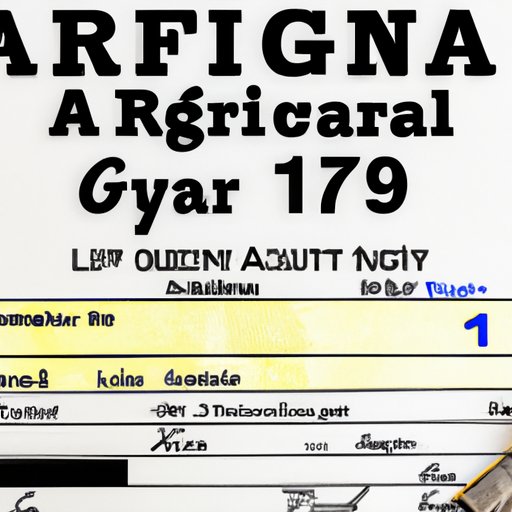Introduction
Becoming a pilot is an exciting and rewarding career choice. But how old do you have to be to become a pilot? That’s a question that many aspiring aviators have, and it’s important to understand the age requirements in order to pursue a successful career in aviation.
In this article, we will explore the minimum age requirements to become a pilot. We will look at the rules governing pilot age requirements, the benefits of starting young, and the complexities of age restrictions for various types of aircraft. Finally, we will provide a guide to becoming a pilot at different ages.
What Are the Rules Governing Pilot Age Requirements?
The Federal Aviation Administration (FAA) sets the rules for pilot age requirements. According to the FAA, a pilot must be at least 16 years old to receive a student pilot certificate, which allows them to fly solo with certain restrictions. To receive a private pilot certificate, the minimum age requirement is 17 years old. And to receive a commercial pilot certificate, the minimum age is 18 years old.
In addition to these general age requirements, there are also age limitations for different types of aircraft. For example, pilots must be at least 21 years old to act as a pilot-in-command of an aircraft that carries passengers or cargo for hire. And pilots must be at least 23 years old to act as a pilot-in-command of an aircraft that requires two pilots.

The Benefits of Starting Early: Why Young Pilots Are Needed
There are many advantages to starting a career in aviation at a younger age. For one, young pilots have more opportunities to learn and gain experience. As they progress through their training, they can take on more responsibility and develop their skills.
Starting at a younger age also gives young pilots more time to accumulate flight hours and build their resumes. This can help them stand out when applying for jobs and can open doors to higher-level positions in the industry.

Understanding the Complexities of Age Requirements for Piloting Aircraft
In addition to the general age requirements set by the FAA, there are other considerations when it comes to age requirements for piloting aircraft. Different types of licenses require different levels of experience and training, and some may come with additional age restrictions.
For instance, a pilot who wishes to become an airline transport pilot must be at least 23 years old and have 1,500 hours of flight time. Additionally, pilots must meet specific medical standards and pass written and practical tests in order to qualify for certain licenses.
A Guide to Becoming a Pilot at Different Ages
If you’re interested in becoming a pilot but aren’t sure where to start, here’s a guide to getting started at different ages:
Under 18 Years Old
If you’re under 18 years old, you can still get started on your path to becoming a pilot. At 16 years old, you can apply for a student pilot certificate, which will allow you to fly solo with certain restrictions. You can also begin taking ground school courses and flight training lessons.
18 to 24 Years Old
At 18 years old, you can apply for a private pilot certificate, which will allow you to fly without any restrictions. You can also begin building your flight hours and gaining experience. If you’re over 21 years old, you can also apply for a commercial pilot certificate, which will enable you to fly for hire.
25 Years and Older
If you’re 25 years old or older, you can apply for an airline transport pilot certificate, which will allow you to fly large aircraft. You will need to have 1,500 hours of flight time and meet certain medical and written test requirements.
Conclusion
In conclusion, the minimum age requirements for becoming a pilot vary depending on the type of aircraft and license. The FAA sets the general age requirements, but there may be additional restrictions for certain types of aircraft. It’s important to understand the complexities of age requirements for piloting aircraft in order to pursue a successful career in aviation.
Younger pilots have more opportunities to learn and gain experience, and they can take on more responsibility as they progress through their training. Whether you’re under 18, between 18 and 24, or over 25, there are steps you can take to become a pilot.
(Note: Is this article not meeting your expectations? Do you have knowledge or insights to share? Unlock new opportunities and expand your reach by joining our authors team. Click Registration to join us and share your expertise with our readers.)
